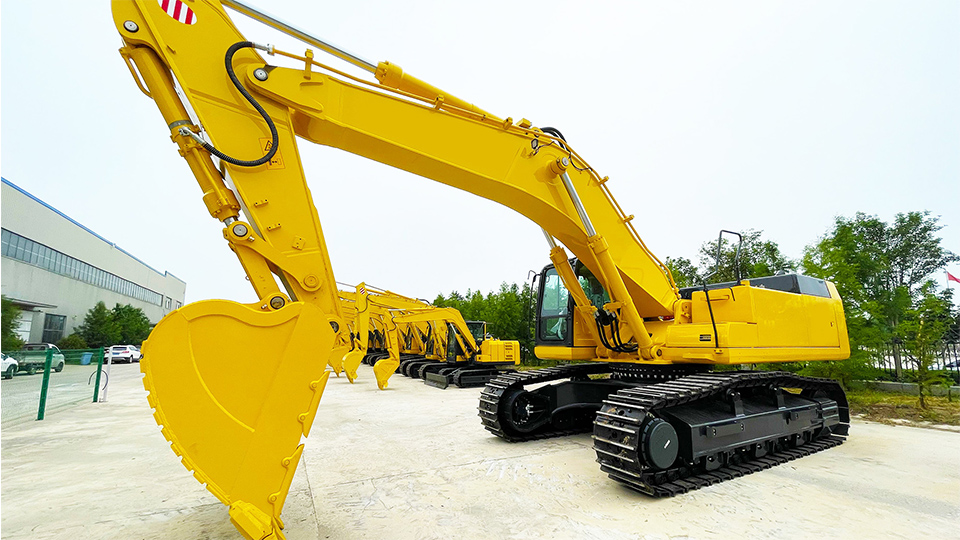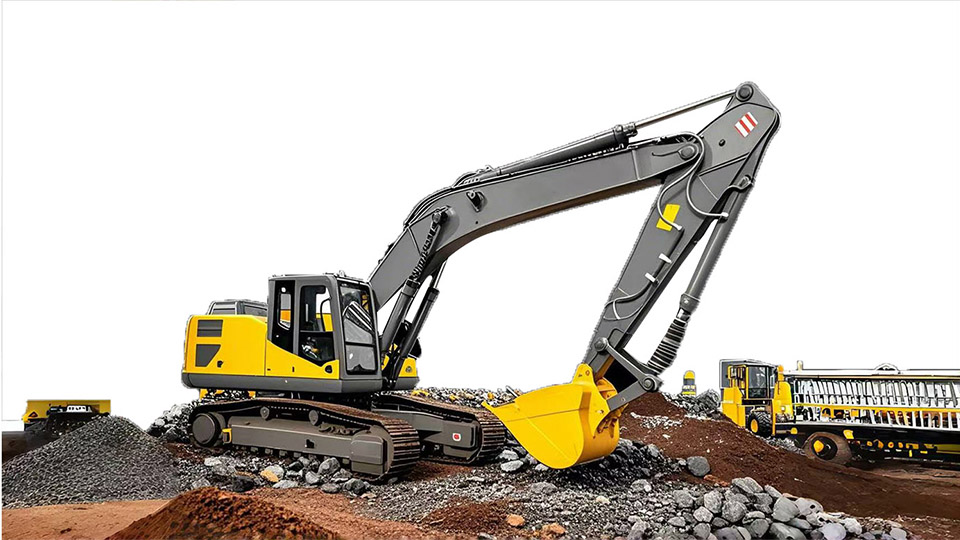When it comes to purchasing construction equipment, buying a used mini excavator can be a cost-effective solution for many contractors and small businesses. However, it’s crucial to approach this decision with caution and thorough research to ensure you get the best value for your money. This article will guide you through the key considerations and tips for buying used mini excavators, covering everything from inspection to maintenance and long-term value.
1. Why Buy a Used Mini Excavator?
Used mini excavators offer several advantages over new models, particularly for those on a budget or looking to expand their fleet without a significant financial outlay. Some key benefits include:
Cost Savings: Used mini excavators can be significantly cheaper than new ones, allowing you to allocate funds to other areas of your business.
Versatility: Mini excavators are designed for compact spaces and can handle a variety of tasks, from digging and grading to lifting and moving materials.
Proven Performance: Used machines often come with a track record of performance, giving you an idea of their reliability and durability.
2. Key Considerations When Buying Used Mini Excavators
2.1 Machine Condition
Inspecting the condition of a used mini excavator is critical. Here are some key areas to focus on:
Exterior and Undercarriage: Look for signs of rust, dents, or excessive wear on the body and undercarriage. Check the tracks for cracks, cuts, or worn-out spots. The undercarriage is particularly susceptible to wear, so ensure the tracks are properly tensioned and free from debris.
Hydraulic System: Check for leaks in the hydraulic system and ensure the fluid is clean and at the correct level. Hydraulic systems are crucial for the excavator’s functionality, so any issues here can be costly.
Engine and Fuel System: Inspect the engine for any unusual noises, leaks, or signs of wear. Ensure the fuel lines are intact and the fuel filter is clean.
2.2 Service History
A well-maintained machine will have a detailed service history. Ask for maintenance records and check for regular oil changes, filter replacements, and other routine checks. A consistent maintenance schedule is a good indicator of a well-cared-for machine.

2.3 Attachments and Accessories
Consider the attachments that come with the excavator. Common attachments include buckets, thumbs, and breakers. Ensure these are in good condition and compatible with the machine.
2.4 Test the Machine
Before finalizing the purchase, test the excavator to ensure all systems are working correctly. Check the controls, lights, horn, and other operational features. This hands-on experience can reveal potential issues that might not be apparent during a visual inspection.
3. Maintenance Tips for Used Mini Excavators
Regular maintenance is essential to extend the life of your used mini excavator and prevent costly repairs. Here are some key maintenance tips:
3.1 Daily Checks
Fluid Levels: Check engine oil, hydraulic fluid, and coolant levels daily.
Track Tension: Ensure the tracks are properly tensioned to prevent excessive wear.
Attachments: Inspect all attachments for wear or damage.
3.2 Weekly and Monthly Maintenance
Greasing: Lubricate all fittings and pivot points to reduce friction and wear.
Filter Replacement: Replace air and hydraulic filters regularly to maintain system efficiency.
Undercarriage Cleaning: Clean the undercarriage to remove dirt and debris, preventing corrosion and wear.
3.3 Annual Checks
Fluid Replacement: Drain and refill hydraulic fluid annually to maintain system performance.
Battery Inspection: Check battery terminals for corrosion and ensure a secure connection.
4. Common Issues to Watch For
When buying a used mini excavator, be aware of common issues that can indicate potential problems:
Leaks: Hydraulic, coolant, or fuel leaks can signal underlying issues that may require costly repairs.
Unusual Noises: Strange noises during operation can indicate mechanical problems.
Sluggish Performance: Slow or unresponsive hydraulic systems may suggest issues with the pump or fluid.
5. Budgeting for Maintenance
While buying a used mini excavator can save you money upfront, it’s essential to budget for ongoing maintenance. Regular maintenance costs should be factored into your overall budget to ensure the machine remains in good working order. Investing in high-quality lubricants, filters, and other maintenance items can help prevent more costly repairs down the line.

6. Where to Buy Used Mini Excavators
When looking for a used mini excavator, consider the following options:
Reputable Dealers: Dealers specializing in used construction equipment often have a wide selection and can provide detailed information on each machine’s history.
Online Marketplaces: Websites like eBay and Craigslist can offer good deals, but be cautious and ensure you can inspect the machine before purchasing.
Auctions: Government and private auctions can be a source of used mini excavators, but again, inspect the machine thoroughly before bidding.
7. Conclusion
Buying a used mini excavator can be a smart investment if you approach the process with diligence and thorough research. By carefully inspecting the machine, reviewing its service history, and planning for regular maintenance, you can ensure you get a reliable and cost-effective piece of equipment. Remember, a well-maintained used mini excavator can offer years of service, making it a valuable addition to your fleet.
With these tips in mind, you’ll be well-equipped to navigate the market for used mini excavators and make a confident purchase decision.
Post time:Sep-25-2020
